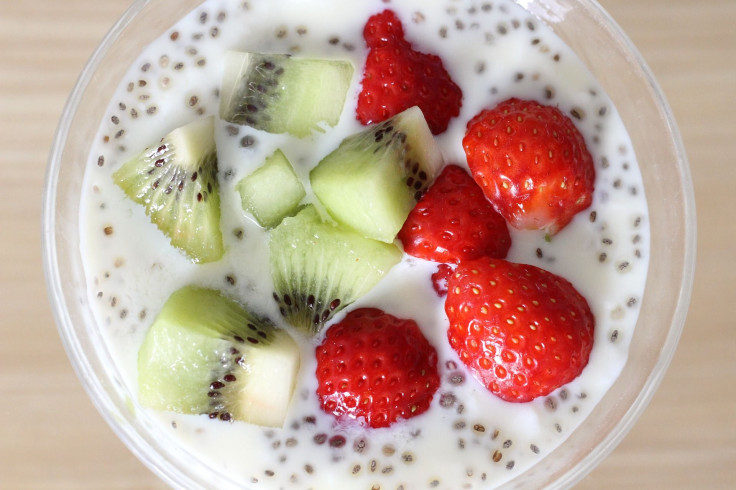6 Simple And Natural Ways To Improve Your Mental Health In 2017 Without Medication

A new year is as good a time as any to make a fresh start when it comes to improving mental health. And while some people could potentially benefit from making an appointment with a therapist or taking a certain medication, drugs are not for everyone. Instead, some simple habits could make your mind healthier in 2017.
Get some sleep
We are supposed to spend a third of our lives asleep, but a lot of people don’t go a full eight hours every night. Not getting enough sleep, however, increases stress levels and often makes us hungrier. If you’re having trouble sleeping but earplugs aren’t getting the job done, try using white noise — through a machine, a fan or an air conditioner — to lull you to sleep. Popular Science explains, “When a noise wakes you up in the night, it's not the noise itself that wakes you up, per se, but the sudden change or inconsistencies in noise that jar you. White noise creates a masking effect, blocking out those sudden changes that frustrate light sleepers, or people trying to fall asleep,” because it creates a consistency of sound across hearable frequencies. Sticking to a routine may also help, like having a strict bedtime, avoiding bright lights after a certain hour and drinking relaxing tea.
Read: How To Sleep Through Your Partner’s Snoring
Eat yogurt
A recent study has shown that a probiotic found in yogurt and supplements can reduce anxiety and stress in general. Anxiety disorders are some of the most common mental health problems, but they don’t just affect the brain — many people also have symptoms in their digestive tracts. So it turns out that in addition to aiding digestion, good gut bacteria may also help mental health. Other studies have suggested probiotics could also improve a person’s mood.
Practice mindfulness
The form of meditation called mindfulness is a popular strategy for relieving anxiety and depression on a daily basis. The technique requires you to refocus your senses, such as paying more attention to the different colors and smells around you or your own breathing pattern. Research suggests that in many cases, mindfulness can be as effective as therapy by helping people take power away from persistent negative thoughts. Prison guards in Oregon who have been trained in mindfulness have found that it helps them stay calm during incidents with inmates, making the prisons safer.
Read: 1 in 6 Adults Takes Psychiatric Drugs
Go easy on the coffee
As painful as this is to even consider, reducing caffeine intake could improve mental health. Although at certain levels, research has shown that coffee may protect the brain from dementia or other cognitive impairments, having more than four cups a day, or about 400 milligrams of caffeine, can cause some serious side effects, putting a person on edge and causing restlessness, irritability, a fast heartbeat and nervousness. It can also cause insomnia, tremors and twitches. If you decide to lay off coffee, however, make sure to wean yourself slowly, because people dependant on caffeine could experience withdrawal symptoms like headaches and fatigue.
Read: 6 Strange Side Effects of Stress
Go easy on the weed too
A new study of twins in Norway found that people who abuse marijuana are more than three times as likely to develop schizophrenia, the psychotic disorder characterized by bizarre behavior, delusions, hallucinations and a detachment from reality.
Lie in the sun
Vitamin D has been linked to many different health benefits over the years. New research shows that not having enough of the vitamin our body produces when it comes into contact with sunlight could increase negative mental health symptoms. The findings also showed an association with low vitamin D levels and “cognitive impairments in processing speed and verbal fluency.” It has previously been suggested that a lack of sunlight contributes to a form of depression called seasonal affective disorder, which sees a worsening of symptoms during winter when sun exposure is at its lowest.
See also:
4 Mormon Health Habits to Copy
6 Weird Things That Cause Hallucinations
Published by Medicaldaily.com



























